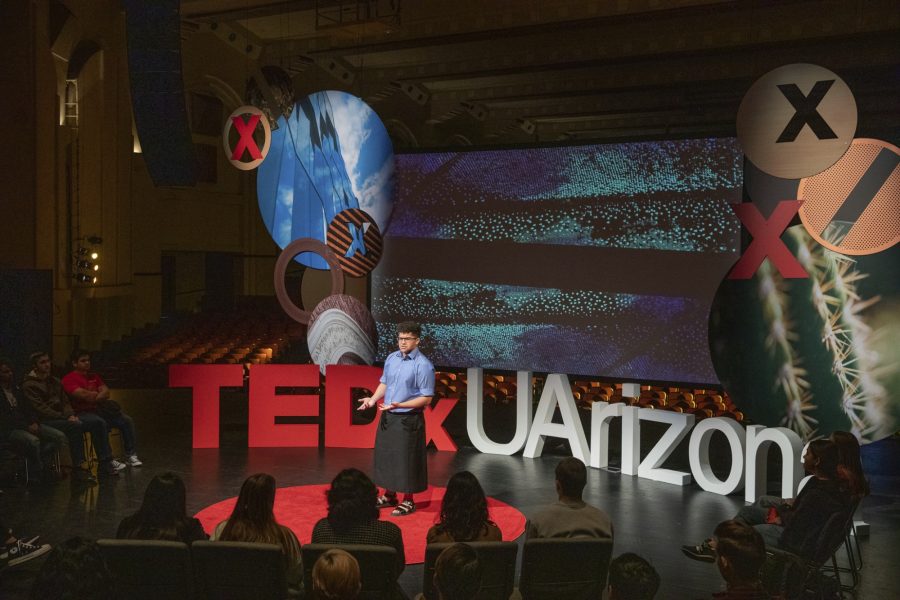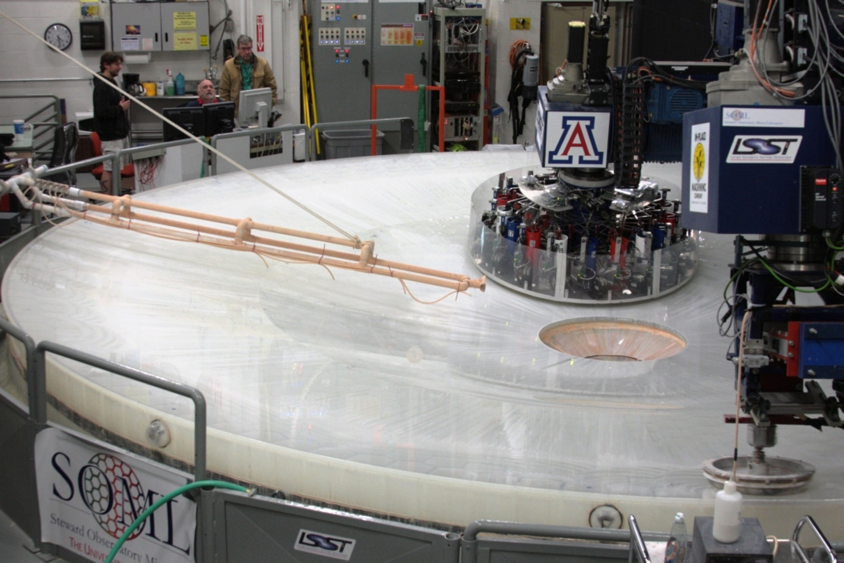The University of Arizona hosted TEDxUArizona on Jan. 31, an all-day conference featuring talks on subjects ranging from gun control to multiculturalism. The theme of the event was “The Messy Middle.”
The theme was inspired by “the state of our contemporary political and social divides,” according to Misha Harrison, executive director of the Experience Team for UA Marketing & Communications.
“We were struck by how difficult it is to communicate even with family because of the pressure to pick a side and defend it, even if we only partly agreed,” Harrison said. “At the same time, we strongly agree with the university’s values of exploration, inclusion and integrity.”
In order to learn from others and the world, according to Harrison, we have to embrace the complexity of these issues; in other words, we have to occupy the “messy middle” of life.
“Exploration obligates us to investigate multiple options at once so we don’t go blindly down a path. The most fruitful exploration comes from multiple viewpoints – inclusion is not just right, it’s smart. And with integrity, we must be true to ourselves and our complexity. Life is messy, complicated and beautiful when we’re in the middle of it,” Harrison said.
The theme resonated with several students in attendance. Caeden Motley, a freshman studying computer science, singled out Hona Vaioleti’s talk as one that he thought fit the theme well.
“I think that the way the speakers have handled the idea of the ‘messy middle’ is really good. I liked [Hona Vaioleti], he was talking about being Tongan, living in America, and it was almost as if he had to pick a culture to side with, how he lives in the middle now. I liked the insight upon that,” Motley said.
Vaioleti, an engineering freshman, gave a talk called “A Life Between Cultures” which focused on what it’s like to navigate cultures as a second or third-generation immigrant.
Vaisha Nair, a senior studying political science and law, also resonated with Vaioleti’s talk.
“It was really relatable for me as a child of immigrants,” Nair said. “And I think he did a really good job of not making it too cliché, in a way.”
Nair enjoyed watching one of her own professors give a talk: Jennifer Carlson, associate professor of sociology and government and public policy. Carlson is currently working on a project funded by the National Science Foundation that “aims at better understanding how gun violence extracts a significant cost–psychically, emotionally and beyond–on the lives of people in the US and the consequences for their social and political lives,” according to her website.
“Professor Carlson is my professor, I have her for class. She did a talk about gun violence, and the class I take with her is Guns in America,” Nair said. “It was really relevant to what I was studying and what I learned.”
The talk focused on different perspectives on gun ownership and gun violence in America.
“[Carlson] didn’t give too much of her personal opinion on gun control. She talked more about how with the idea of gun control, you should be able to hear both sides, and how there’s this idea the average gun owner is a white male. She talked about the other gun owners you don’t see,” Motley said.
Tickets to attend TEDxUArizona were distributed via an online lottery. Due to the limited number of seats available and the popularity of TED talks, many of those who entered the lottery were waitlisted and didn’t get to attend.
“Everybody I know that knew I was going to this was incredibly jealous, so I hope other people have the opportunity to go,” Nair said.
Harrison said that the university plans to host a TEDxUArizona event once a semester. She hopes that the talks inspire members of the university community to engage with new ideas outside of their own realm of study.
“We hope that the Wildcat community gets excited about the quality of ideas all around them, and engages on a deep level,” Harrison said. “Faculty, students, staff, alumni – there are extraordinary thinkers and doers across the university. Imagine being open to ideas outside our majors, our jobs, our social media algorithms. We could all begin to heal, to hear each other and to solve bigger problems.”
Follow Kristijan Barnjak on Twitter









